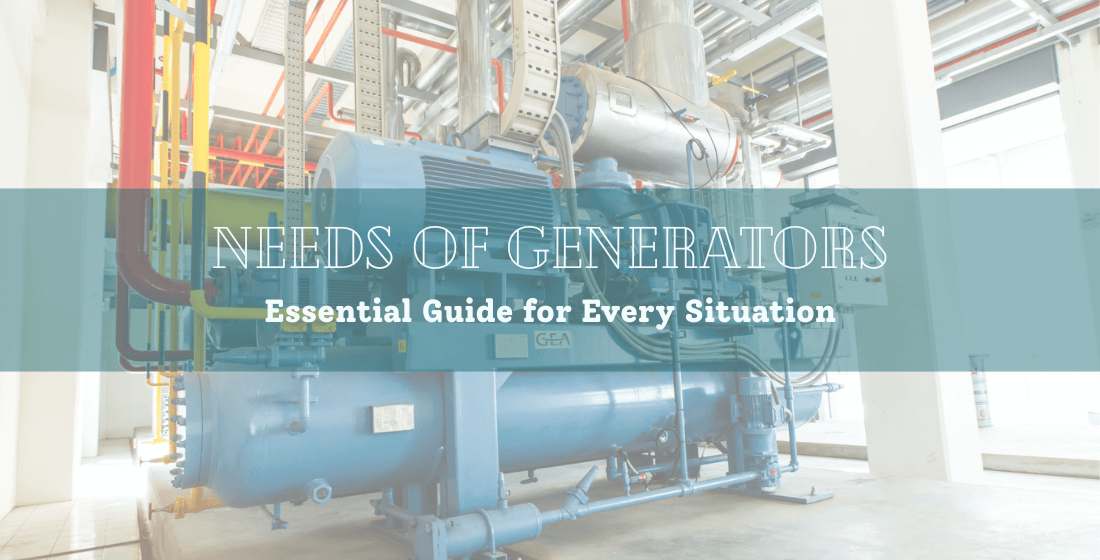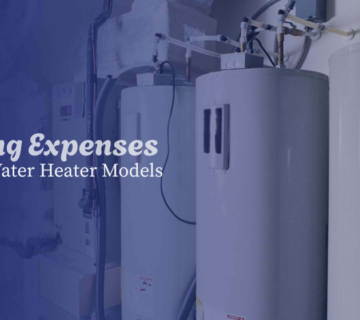When is a Generator Required?
Generators play a pivotal role in ensuring uninterrupted access to power. While their necessity might not always be apparent, there are specific scenarios where a generator is essential. Understanding when to use one can help individuals, businesses, and communities avoid the inconvenience and risks of power outages. Here, we’ll explore the significance of the circumstances that demand a backup generator for your home and how to determine whether investing in one is the right decision.
1. Emergency Preparedness for Homes
Natural disasters, such as hurricanes, floods, or snowstorms, can lead to prolonged power outages. In such cases, a generator can ensure the continuity of critical household functions, such as lighting, heating, cooling, and refrigeration. For families relying on medical devices like oxygen concentrators, generators are lifesavers, preventing interruptions that could otherwise be life-threatening.
Standby generators, which are permanently installed, automatically activate during outages, making them an ideal choice for homes in disaster-prone regions. On the other hand, portable generators offer flexibility and are more affordable, though they require manual operation.
2. Business Continuity
For businesses, a power outage can lead to financial losses, halted operations, and customer dissatisfaction. Retail stores may face spoiled inventory without refrigeration, while IT-dependent industries can lose critical data or face disruptions in their services. Generators ensure seamless operations, maintaining everything from point-of-sale systems to data centers during an outage.
In highly regulated sectors like healthcare, the need for backup power is even more critical. Hospitals and clinics require uninterrupted power for surgical equipment, ventilators, and other life-supporting devices. Generators are often a legal requirement for such facilities to ensure patient safety.
3. Construction and Outdoor Worksites
Generators are indispensable in construction and other outdoor industries where electricity is unavailable. From powering tools and heavy machinery to providing lighting in remote areas, generators enable workers to maintain productivity and meet project deadlines. Diesel and gas-powered portable generators are commonly used in these settings for their reliability and ease of use.
4. Events and Recreational Activities
Outdoor events, such as weddings, concerts, and festivals, often require a power source for lighting, sound systems, and food services. Similarly, recreational activities like camping or RV travel benefit from portable generators, allowing people to enjoy modern conveniences in remote locations.
5. Critical Infrastructure and Public Services
Generators are vital for maintaining critical infrastructure, such as water treatment plants, transportation systems, and communication networks. During emergencies, these facilities must remain operational to support public safety and recovery efforts. For example, airports, fire stations, and police departments rely on backup generators to function effectively during outages.
6. Off-Grid Living and Renewable Energy Backup
In areas without access to the main power grid, backup generators for your home are essential for daily living. They also serve as backup systems for homes or facilities reliant on renewable energy sources like solar or wind, which can be inconsistent due to weather conditions. A generator ensures energy availability during cloudy days, calm winds, or unexpected system failures.
Factors to Consider Before Getting a Generator
Before investing in a generator, it’s crucial to assess your specific needs:
- Duration of Power Outages: Frequent and extended outages make a generator more necessary.
- Power Requirements: Determine the wattage needed to run essential appliances and systems.
- Budget: Standby generators are costlier but more convenient, while portable options are budget-friendly but require manual setup.
- Environmental Impact: Eco-friendly generators, such as those powered by solar or propane, are worth considering for reduced emissions.
- Maintenance and Safety: Regular upkeep is necessary to ensure reliability. Follow safety guidelines to prevent carbon monoxide poisoning and fire hazards.
Conclusion
Generators are not just a convenience but a necessity in many situations, providing reliable power during outages or in areas without electricity. From homes and businesses to outdoor events and critical infrastructure, their applications are diverse and impactful. Choosing the right generator depends on your specific requirements, budget, and intended use.
By investing in a backup generator for your home, you’re not just ensuring continuity in power but also safeguarding against potential risks, losses, and inconveniences. Whether it’s for emergency preparedness, business operations, or recreational use, having a generator can make all the difference in staying resilient and prepared for the unexpected.
Whether you’re planning a new franchise, preparing for emergencies, or exploring reliable power solutions, our experienced team is here to guide you. We bring technical precision, regulatory expertise, and client-focused support to every project.
How-To: Choosing and Using a Generator Effectively
- How to Choose the Right Generator
Selecting a generator depends on your power needs, budget, and intended use. Follow these steps:
Assess Power Requirements – List essential appliances and devices you need during an outage. Check their wattage and choose a generator that can handle the total load.
Select the Type –
Portable Generators: Affordable, ideal for short-term or occasional use.
Standby Generators: Automatic, permanent backup for homes and businesses.
Inverter Generators: Fuel-efficient and quiet, perfect for sensitive electronics. - How to Set Up a Generator Safely
Placement – Always place portable generators outdoors, away from windows and vents, to prevent carbon monoxide poisoning.
Fueling – Turn off the generator before refueling to avoid fire hazards. Store fuel in approved containers.
Connections – Plug appliances directly into the generator or use a transfer switch to power your home safely.
Startup & Operation – Start the generator according to the manufacturer’s instructions, let it stabilize before connecting devices, and avoid overloading. - How to Maintain a Generator for Longevity
Regular Inspection – Check for leaks, worn-out wires, and fuel levels.
Change Oil & Filters – Follow the maintenance schedule for oil changes, spark plug replacements, and air filter cleaning.
Run Periodically – Operate the generator every few months to keep the engine in good condition.
Store Properly – Drain fuel or add stabilizers if storing for a long time. Keep it in a dry, ventilated space.
FAQ: Common Questions About Generators
It depends on your power needs. A 5,000–7,500-watt generator can run essential appliances, while whole-house generators require 20,000 watts or more. Use a wattage calculator for accuracy.
No. Generators produce carbon monoxide, which is deadly in enclosed spaces. Always run them outside with proper ventilation.
Run time depends on fuel capacity and type. Portable generators usually last 6–12 hours, while standby generators connected to large propane or natural gas tanks can run for days.
Yes, in most areas. You may need permits and inspections for permanent standby generators. Check with your local authorities before installation.
Yes, if you choose a whole-house generator with enough wattage. Otherwise, prioritize critical appliances to avoid overloading.
Calculate total wattage before connecting devices. Avoid plugging in too many high-wattage appliances at once. Use a generator with a circuit breaker for safety.
Use soundproof enclosures, place the generator on a soft surface, or choose an inverter generator for quieter operation.
Inverter generators produce clean, stable power, making them ideal for sensitive electronics. They are quieter and more fuel-efficient than conventional models.





No comment